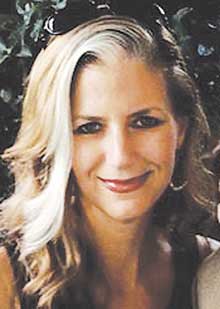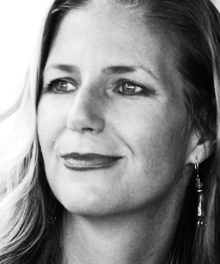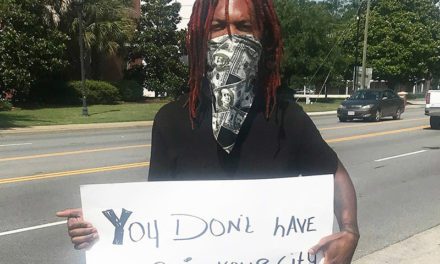 By Margaret Evans, Editor
By Margaret Evans, Editor
Traditionally, mid-February is when I write my annual Movie Column. During this grim, bleak, shabby excuse for a month, it always cheers me to look back at the year in movies and comment on the new batch of Oscar nominees. This year, it has somehow come to pass that I’ve only seen three of the nine films nominated for Best Picture. And I call myself a film buff? Disgraceful.
But don’t let my sorry attendance record fool you; as we all know, sometimes dreary ol’ life gets in the way of our fondest desires. I am still a passionate moviegoer, and I fully intend to see at least two or three more Oscar contenders before the awards in early March. In fact, the DVD of Blue Jasmine (Cate Blanchett for Best Actress) is sitting right here beside me on my desk, just waiting for me to finish this column . . .
For me, a really great movie is the closest thing to a religious experience I know . . . besides a religious experience. In last year’s column, I even floated the wacky notion that movie theaters, for many people, serve the same purpose that churches once did in today’s increasingly secular society:
“Hear me out, o’ ye of little faith in film. When was the last time you found yourself with a large group of people, sitting quietly for a long period of time, in rapt attention, watching and listening and feeling your heart grow inside you? Perhaps you were moved to tears, and heard others around you sniffling, too? Maybe, at the end of the experience, the crowd burst into spontaneous applause, and you found yourself clapping, too, and crying again, and you knew that something inside you had changed forever. And you couldn’t wait to go out and spread the word. Where were you the last time that happened? At church? If you answered ‘at the movies,’ you’re not alone. If you answered ‘at the movies, while seeing Les Miserables,’ I was sitting two rows behind you, to the left.”
When you find yourself quoting your old column in your new column, chances are you’ve run out of things to say on a subject. Movies, church, been there, done that. Time to move on.
But I don’t want to leave the topic entirely, because, well… it’s mid-February. This is my Movie Column.
So, I thought I’d say a few words on the recent death of actor Philip Seymour Hoffman. I know, I know… you’re tired of it. In certain Facebook circles, it’s been all Hoffman all the time for almost two weeks. My conservative friends have been commenting on his “poor children,” the “selfish choice” he made, and the dangerous cult of “heroin chic” in Hollywood. My progressive friends have been talking about his “poor children,” his “amazing artistry,” and the “misunderstood disease” that is addiction. I hate to break it down into a “left vs. right” thing, but it’s almost uncanny the way that’s played out in social media. I’ve learned a lot from these discussions, and as usual, I find myself agreeing with almost everybody a little bit and almost nobody entirely.
But there is this fury out there – dominant, it seems, among those of a rightward persuasion – that makes me a little… well, furious. There’s this angry conviction that Hoffman – arguably the most gifted actor of his generation and a father of three – made a choice, of his own free will, to blithely reactivate the heroin addiction he’d so vigorously fought for 23 years, and therefore deserves no mourning. This fury continues to rage despite all evidence to the contrary. Nothing I’ve learned about this man – that he was a loving, devoted dad, that he was rigorously dedicated to his work, that those who knew him found him a kind, gentle soul – suggests this was a “choice” he’d have made in his right mind. And everything I’ve learned about addiction tells me that an addict once made cannot be unmade, that his brain is not like my brain, that he must stay absolutely vigilant to avoid relapse. (Absolute vigilance. Can you imagine?) If the addict is prone to depression – no, not a bad mood, but an actual clinical condition of the brain – it can be almost impossible. The most current research tells us that drug addiction is a chronic illness, that its relapse rates are comparable to relapse rates of other chronic illnesses that people try – and often fail – to manage, like type 2 diabetes, asthma and hypertension.
But the “He made a choice” crowd doesn’t buy it. There’s a certain kind of person out there who, never having been addicted – never having experienced that complete loss of control to a substance – simply can’t fathom that such a condition exists. “It’s never happened to me,” goes the thinking, “and I can’t imagine it happening to me . . . therefore it can’t happen.” Which is only a short step from, “He made a choice.” Maybe even Hoffman himself, now two decades past his initial run-in with heroin, suffered a similar failure of imagination. “It was such a long time ago. I’m in control now. It could never happen again.” So he took some prescription pain medication, and the rest, sadly, is history.
There’s another Hoffman meme out there that’s bugging me, too – a “tortured artist” joke that mocks the idea of the artist as someone who might be especially prone to self-medicating, that devalues or even denies the acute sensitivity that artists naturally possess and must actively cultivate. “Artists are no different from the rest of us,” this thinking goes, in what amounts to another failure of imagination. “They do drugs because they think it’s cool; they’re no more troubled or sensitive than anybody else.”
Are you kidding me? Have you seen Philip Seymour Hoffman on screen? Have you seen what he does? The way he inhabits his characters completely, making each of them, no matter how small, a complicated, fully-realized human being you feel like you’ve known forever, because, in a way, you have? Do you know how hard it is to do that?
I’ve done a little theatre in my day – just small time, community stuff, but I’ve worked with some fantastic directors, and they taught me what it takes to “go there” with a character. It takes brazen honesty, radical empathy, and a willingness to wholly lose yourself to your character. It’s exhilarating, but it can be nothing short of grueling, too. I once played Ophelia in Hamlet; if you’ll remember, she has her heart broken then loses her mind. On stage. Imagine living in her head for a few months. After that, I played Charlotte Bronte in a one-woman show. I thought the hardest part would be nailing the British accent. That was tough, but it was nothing compared to having my sister Emily die on me (off stage) night after night. I have three sisters of my own, and the Emily monologue brought me to tears in every single performance. I can assure you, they weren’t crocodile tears.
Now, imagine this is what you do for a living. This is your life, day in, day out. It’s not about looking cool or walking red carpets or getting your picture in US Weekly or hanging out at Sundance. It’s about turning yourself inside out to tell stories that make people think and feel and see through new eyes . . . and it hurts.
Please don’t imagine I’m putting myself in a category with the great – yes, great – Philip Seymour Hoffman. I’m just trying to make a point about art, and what it is artists do, and what art does to artists. And here’s the thing: You don’t have to be an artist to understand that they truly are not “just like the rest of us.” You only have to engage with their work.
But maybe you’re just not that into movies. Or theatre. Or art of any kind. Maybe that’s just not your thing. And that’s okay. But until it is your thing – until you’ve been profoundly moved or enlightened or changed by an artist – you really don’t know what you’re talking about when you mount your high horse and make pronouncements on the subject. (Kind of like with addiction.) I’d ask you to use your imagination, but I’m not sure you’d know how.
I’m sorry for being so snippy, but I’m angry right now. I’m angry that a beautiful soul and world class artist has left this earth, and all some people can say is, “Eh, it’s Hollywood. What d’ya expect?” If you, too, have become jaded by Hollywood – and I get that, truly I do – please join me at USCB this week for the 8th annual Beaufort International Film Festival. Come meet some independent filmmakers, engage with their work, and remind yourself what art – glorious art – is really all about.






